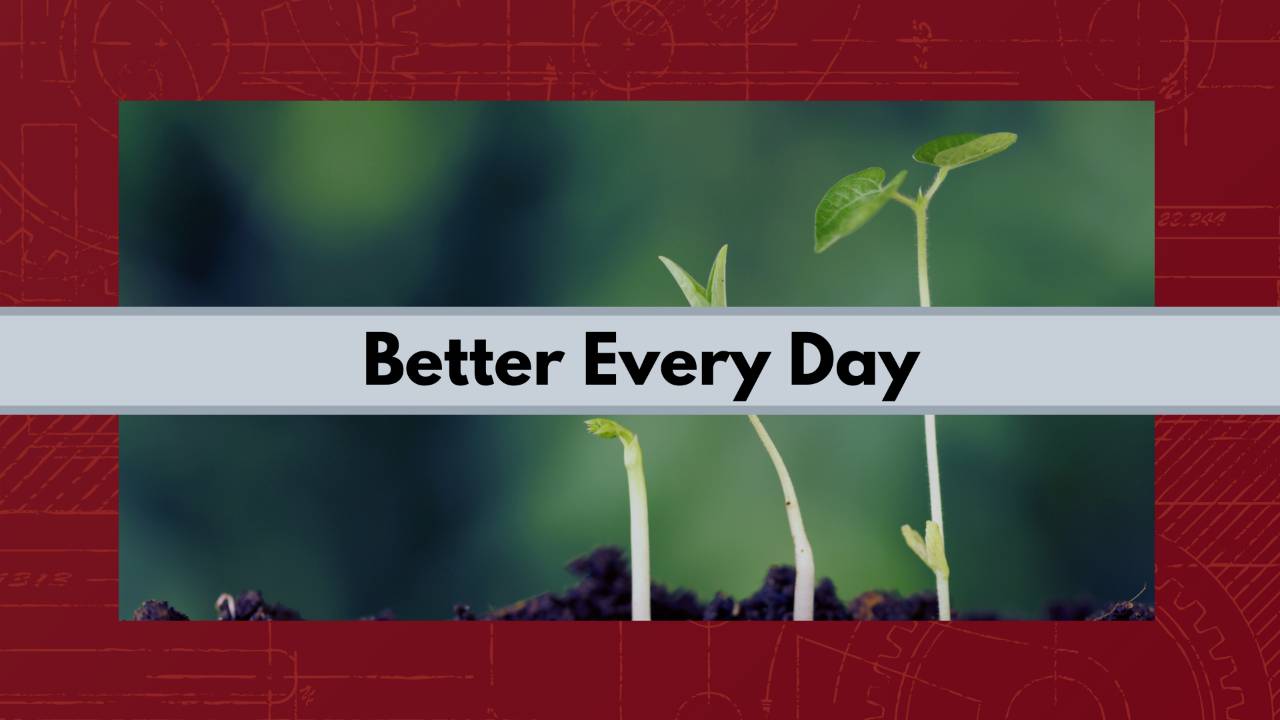Better Every Day
Your 52-Week Journey for Peak Performance
Whether you're an entrepreneur, an artist, a student, or someone just passionate about lifelong learning and self-improvement, "Better Every Day" is curated to fuel your fire. If you believe in the power of consistency and value the gratification that comes from personal growth, this journey is for you.
Beyond the How: The Transformative Magic of Knowing Your 'Why' |
There's a profound statement by Friedrich Nietzsche that has withstood the test of time: "He who has a why to live can bear almost any how." This sentiment, both deep and resounding, speaks to the fundamental essence of human motivation and resilience. When it comes to peak performance and personal development, understanding and embracing your "why" is crucial. So, why is the "why" more significant than the "how"?
- The "Why" Fuels Motivation
Simon Sinek, in his groundbreaking book "Start With Why," asserts that organizations and individuals who understand their "why" – their purpose, cause, or belief that inspires them to do what they do – are more successful and able to inspire others (Sinek, 2009). Kotler also argues that having a clear sense of purpose can lead to increased opportunities for entering a flow state. When individuals are deeply connected to their "why," they can become more intrinsically motivated, which is a key trigger for flow. Intrinsic motivation makes tasks inherently rewarding, and when we are passionate about what we're doing or deeply believe in the purpose behind our actions, we are more likely to get into the zone or flow state, leading to heightened performance (Kotler & Wheal, 2017).
- The "Why" Provides Resilience
Challenges, failures, and setbacks are inevitable in any pursuit of growth. Studies have shown that people with a strong sense of purpose – those who understand their "why" – are better equipped to handle stress and bounce back from adversity (Zika & Chamberlain,1992). This is because when the going gets tough, it's the reason behind your actions, the deeper purpose, that will carry you forward.
- The "Why" Simplifies Decision Making
When faced with a plethora of options or paths, knowing your "why" acts as a filtering mechanism. It helps distinguish between what's essential and what's merely a distraction. As Steve Jobs once said, "People think focus means saying yes to the thing you've got to focus on. But that's not what it means at all. It means saying no to the hundred other good ideas that there are." Your "why" is the beacon that illuminates the most congruent path.
- The "Why" Enriches the Journey
It's not just about reaching a destination; it's about enjoying the journey. When you are connected with your "why", the process becomes more enriching. Viktor Frankl, in his seminal work "Man's Search for Meaning," spoke of his experiences in Nazi concentration camps and how a sense of purpose was integral for survival and meaning (Frankl, 2006). It’s the deeper purpose that gives color, depth, and richness to our experiences.
- The "How" Can Change, But the "Why" Remains Consistent
Methods, tools, strategies - they all evolve. What's effective today might be obsolete tomorrow. But if you are grounded in your "why", even if the "how" changes, you can adapt and evolve without losing your essence. As the world changes, being adaptable is a crucial skill, and your "why" provides the foundation for that adaptability.
- Sustainability of Action
Knowing your "why" makes actions more sustainable. When driven by external factors or short-term goals, motivation can wane as soon as challenges arise or the initial excitement fades. But when actions are rooted in a deep sense of purpose, individuals are more resilient in the face of obstacles and more consistent in their efforts. This is because purpose offers a long-term perspective, making momentary setbacks seem minor in the grand scheme of things (Kotler, 2014).
So, how does one connect with their "why"? Check out the actionable steps listed below.
References:
Frankl, V. E. (2006). Man's search for meaning. Beacon Press.
Kotler, S. (2014). The rise of Superman: Decoding the science of ultimate human performance. New Harvest.
Kotler, S., & Wheal, J. (2017). Stealing fire: How Silicon Valley, the Navy SEALs, and maverick scientists are revolutionizing the way we live and work. Dey Street Books.
Sinek, S. (2009). Start with why: How great leaders inspire everyone to take action. Portfolio.
Zika, S., & Chamberlain, K. (1992). On the relation between meaning in life and psychological well-being. British journal of psychology (London, England : 1953), 83 ( Pt 1), 133–145. https://doi.org/10.1111/j.2044-8295.1992.tb02429.x
Key Actions [pick one]:

Identify Your Core Values
This exercise will help you to reflect on the values that are important to you, help you to discover the values that truly define who you are at your core, and identify specific behaviors that exemplify those values.

Self- Reflection
Spend time introspecting. Dive deep into understanding what drives you, what inspires you, and what you genuinely care about.

5 Whys Technique
The 5 Whys Technique involves asking "why?" five times in succession to drill down into the root cause of a matter. Start with a basic statement about what you enjoy or want to do, then keep asking "why" until you uncover deeper layers of motivation. For instance, "I want to help people" can lead to deeper purposes as you continue asking why you want to do so.
|
Here is a short story that helps to illustrate the impact that knowing your why can have… "The Lighthouse Keeper's Resolve" |
In a quaint coastal town named Eldridge, there stood an iconic lighthouse that had been a beacon of hope for countless ships across the years. Thomas, the lighthouse keeper, had faithfully operated it for three decades. Many wondered why Thomas, with his intelligence and skills, had not sought out a more lucrative or prestigious position elsewhere. Yet, there was a profound reason behind his unwavering commitment to the lighthouse.
As a child, Thomas had experienced a life-altering tragedy. His father had been a captain of a ship named 'The Hopeful Wanderer'. One fateful night, amid a storm, the ship had lost its way due to the malfunction of the old lighthouse. The ship crashed, and none survived. Young Thomas was devastated. The loss created a void in his heart, but it also planted a seed - a desire to ensure that no other child would have to endure such a loss.
When the old lighthouse keeper retired, Thomas, despite being fresh out of university with a degree in engineering, took the role with a burning passion. People in the town whispered, questioning his choice to settle for a 'lesser' job. Yet, Thomas knew his 'why'. It wasn't just about lighting lamps and ensuring the mechanics were in order; it was about saving lives, about being the guiding beacon for all 'Hopeful Wanderers' out at sea, ensuring they found their way back home.
One evening, a young journalist named Clara visited Eldridge. Intrigued by the stories of the devoted lighthouse keeper, she decided to interview him. As they sat overlooking the vast expanse of the sea, Clara asked, "Thomas, why did you choose this life, knowing you could have had any career you wished for?"
Thomas, looking out at the horizon, responded, "You see, Clara, every time this lighthouse guides a ship safely to shore, I feel I'm bringing my father back home. I've ensured that another family is kept whole. The joy and relief on the faces of sailors and their families when they land safely... that's my reward."
His words moved Clara deeply, and she wrote an article titled "The Guiding Why of Eldridge." The story touched hearts far and wide. Many realized that success isn't just about titles or wealth. It's about knowing your 'why', and for Thomas, his 'why' illuminated not just the sea but also the hearts of those who heard his tale.
In understanding and living by his 'why', Thomas ensured that the lighthouse was not just a structure but a symbol of hope, safety, and unwavering commitment. He was a testament to the fact that when one's purpose is profound and clear, it lights up not just their own path but also the paths of countless others.
Coaching
Individual and Group Coaching
Looking for an individualized approach or a higher level of accountability to increase your chances of a successful outcome? Schedule a call and learn more about our coaching programs with doctoral-level coaches who have specialized knowledge in neuroscience, the psychology of performance, and decades of experience.
Schedule Free Call
Not a member of the 'Better Every Day' program?
Join our FREE 52-week program where we will send you exclusive content and training delivered to your inbox each week.
Get Started Now!!



